As the UK government has instructed the nation to stay at home and only venture out for specific, essential reasons in light of the Coronavirus (Covid-19) situation, many of us are being encouraged to park our cars if we can. Some owners of Toyota hybrids might be wondering what will happen to their car during long periods without use, particularly when it comes to the level of charge in the batteries.
The reassuring news is that no difficult car maintenance is necessary. However, there are some tips that, if followed, can help ensure your Toyota remains in tip-top condition during an extended layoff.
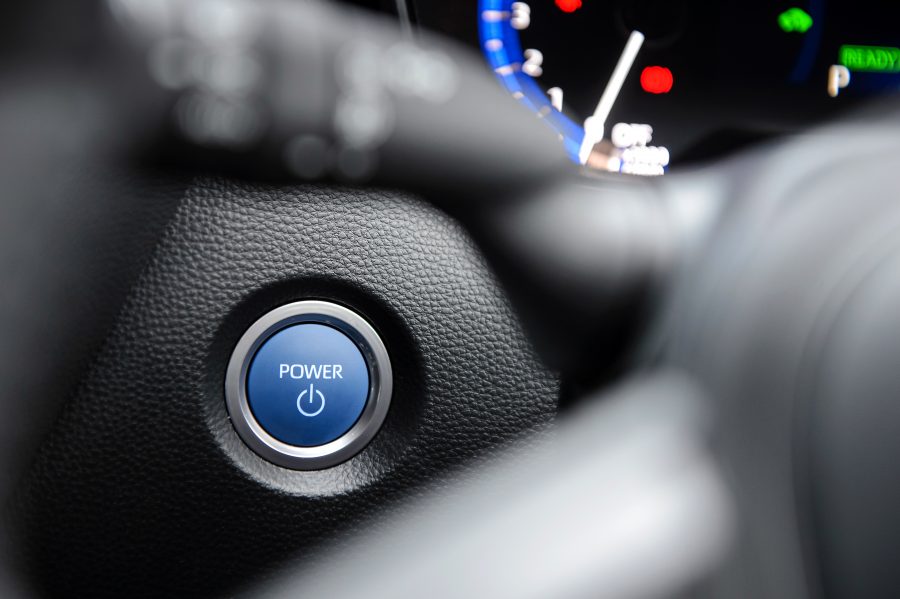
To recap, Toyota hybrids generally contain two batteries: a 12-volt battery (which powers systems such as the headlamps and audio) and a high-voltage hybrid system battery (which supplies the power to start the combustion engine and drive the electric motors).
The simplest way to maintain charge in both of these batteries is to simply go through the normal start procedure: press the ‘Start’ button with your foot on the brake and ensure the ‘Ready’ light is illuminated on the dashboard (you don’t have to keep your foot on the brake thereafter, but ensure your vehicle’s transmission is in ‘Park’ and the parking brake is engaged).
We recommend you put the car in ‘Ready’ mode for about 60 minutes before switching it off again and repeat the process at least once a week, providing you can carry out this procedure while adhering to the government’s advice regarding social distancing and Coronavirus (Covid-19). Please do not leave your car unattended when it is in ‘Ready’ mode.
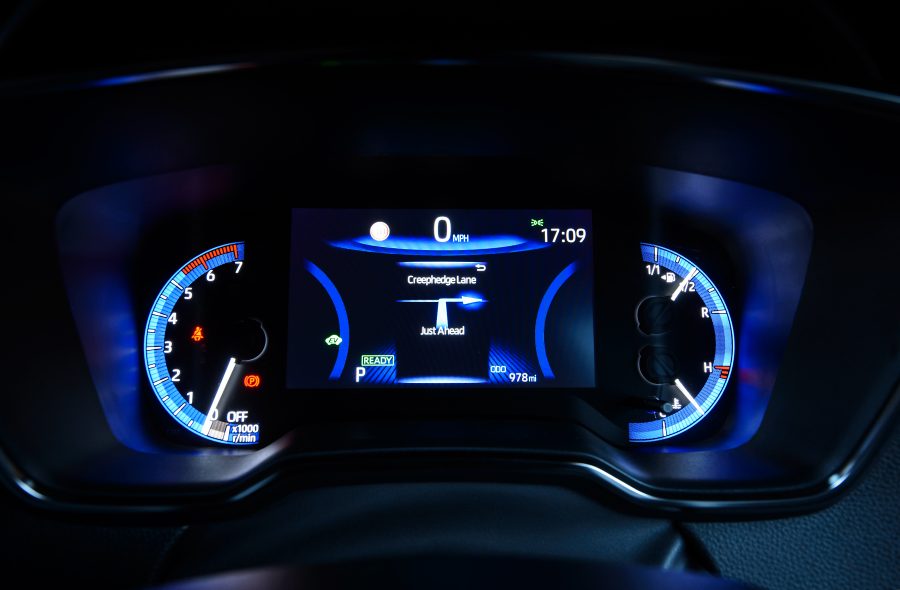
During the time that that car is in ‘Ready’ mode, you may hear and feel the internal combustion engine kick in; this is a normal part of the self-charging process. You might be tempted to switch on the radio to pass the time, or turn on other systems, but bear in mind these will consume small amounts of electrical power so it is preferable to leave them off.
Ensure the handbrake is on; there’s no need to go for a drive, although we must stress that this procedure should take place in a well-ventilated area – something to consider if you park your vehicle in a garage.
What if my Toyota isn’t a hybrid?
Our petrol and diesel cars only have a 12-volt battery, which provides the power to start the engine in addition to the other systems mentioned above. Regular start-up of the vehicle on conventional petrol and diesel engines needs approximately 20 minutes of running to put back into the battery what you remove on start up, so to maintain this battery we would suggest 60 minutes of running at least once a week.
Is there anything else I need to do?
Whether you own a hybrid or a Toyota equipped solely with an internal combustion engine, there are a few other easy car maintenance points that can ensure your Toyota hybrid remains healthy and happy during an enforced hibernation. Again, please adhere to the latest government advice regarding social distancing.
- Check the tyre pressures are fully inflated to the recommended level and top-up if necessary. It can be a good idea to repeat this process when you first drive your car after a long period of inactivity.
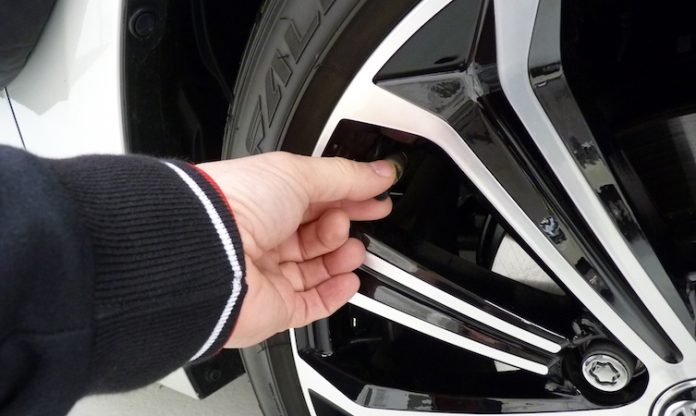
- Clean the car thoroughly inside and out. If you are storing your car in a garage, make sure the vehicle is completely dry before you put it away.
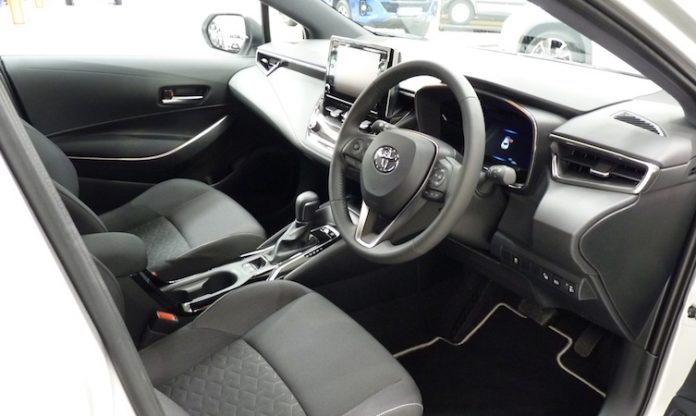
- If you do plan to store your car in a garage, ensure the chosen storage area offers plenty of ventilation. If the space is secure, you could consider opening one of the car’s windows a small way to ventilate the interior. If you do this, you might have to change your car alarm’s setting to prevent it setting off the intrusion sensor – please consult your car’s manual for more information.
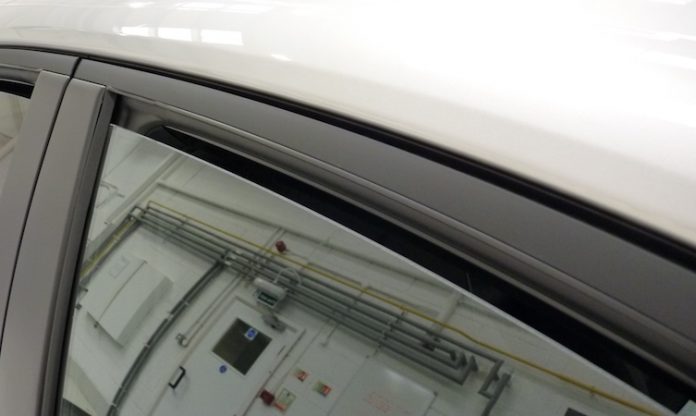
- It can be beneficial to leave the vehicle with the parking brake disengaged to prevent the brakes from binding, but only do this if you are certain the car is on level terrain and isn’t going to move. Ensure the transmission is set to ‘P’ for park and place wedges or chocks, if you have them, under the wheels.
- If you have a 12V battery trickle charger, or a solar panel charger, and are confident using them, then these are a good option to keep the battery fully charged while the vehicle is stationary for a period of time.
- If your vehicle is equipped with smart entry and start but the system isn’t operated for a long time, a battery-saving function will automatically be activated to prevent the electronic key battery and the 12-volt battery from being discharged. Battery depletion in the key is minimised by stopping the electronic key from receiving radio waves. On many models equipped with this system, it is possible to manually put the key into battery-saving mode, so please consult your car’s handbook for more information. If you aren’t planning to drive your car for a long time, consider putting the smart key in a safe place and not carrying it around with you in your pocket. This will prevent the car from ‘waking up’ unnecessarily should you happen to walk near it in your garage or driveway.
- If the vehicle will be kept on private property (such as inside a garage) for the duration of its storage, you could consider applying for a Statutory Off Road Notification (SORN). This informs the DVLA that the car is off the road and you will receive a refund of any remaining full months of tax. However, you won’t be able to drive your car legally until you tax it again, so it is only advisable if you are positive you won’t use your car for a long time. You can read more information about how to SORN your car here.
Read more Toyota GB’s latest statement on the Coronavirus (Covid-19) situation
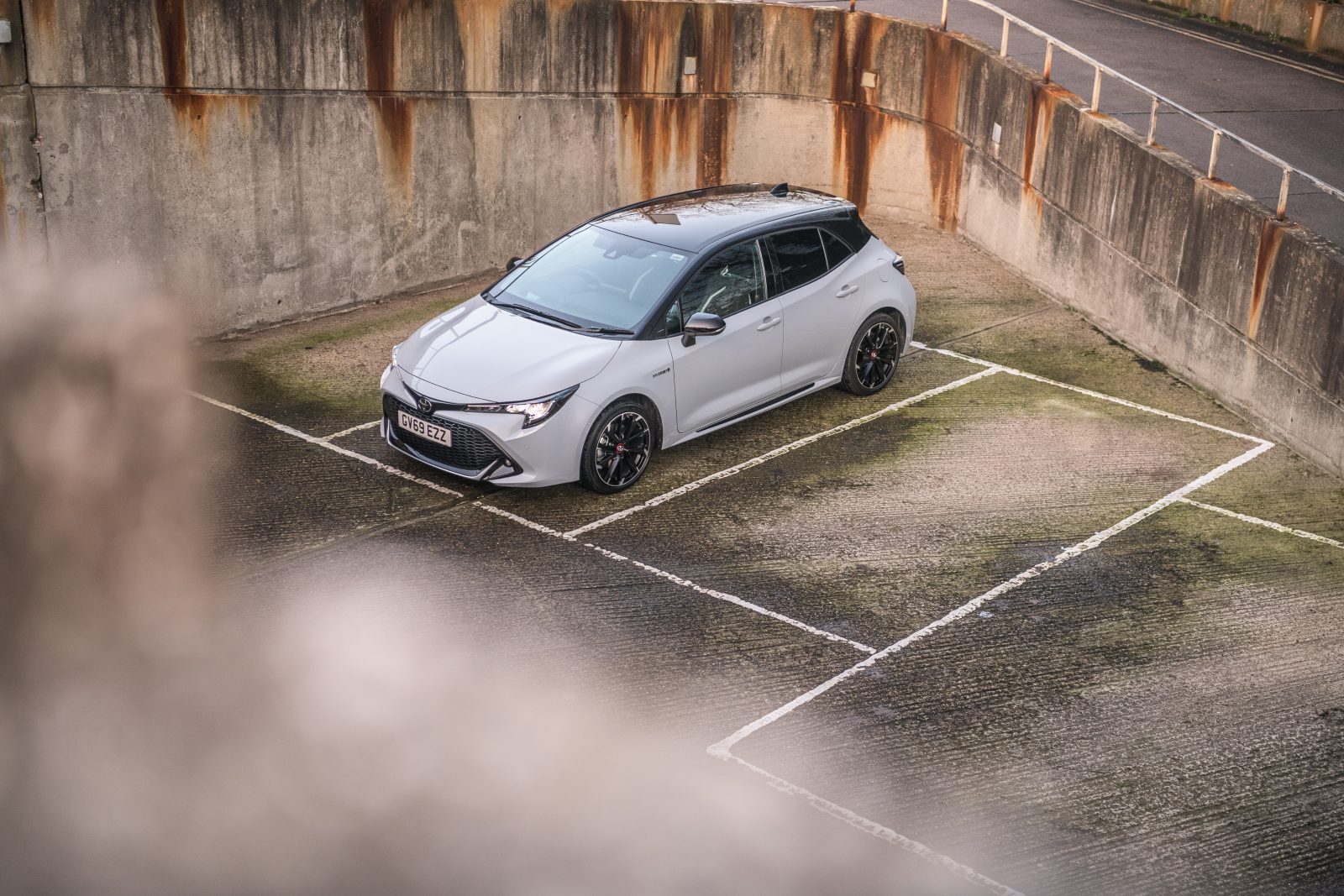
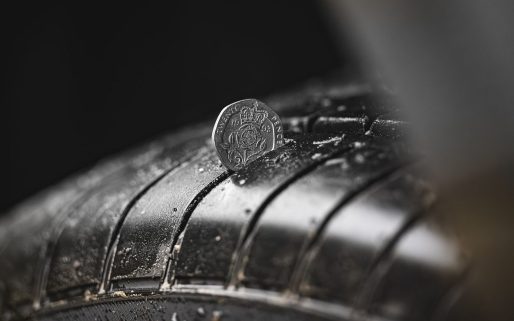
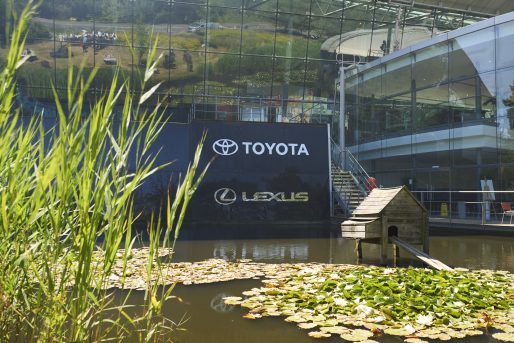
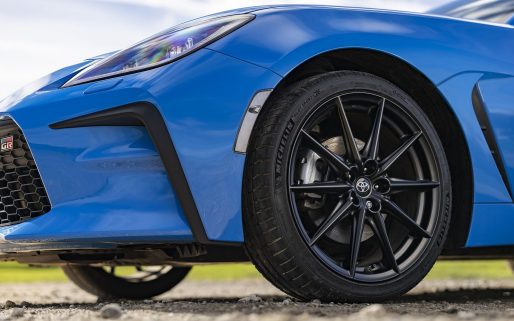
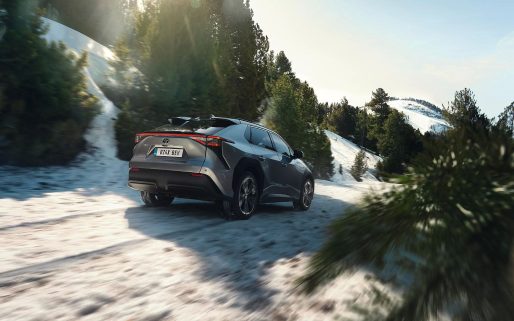
A “battery drain” has been a consistent problem with our hybrid over the five years we’ve had it. To be fair, Steven Eagle in Cambridge repeatedly gave us a new battery saying that the old one was faulty. But the problem was never addressed. I took the vehicle in a few days ago and the senior service manager was very helpful and communicative on the first day. Then there were no updates at all on the second day. This morning, I telephoned and was told by an employee that the senior service manager was busy and could he help. I explained that we had brought the car in for a “While you Wait” appointment a couple of days ago and were going to a funeral today so would appreciate an update. An employee launched into a a raised and emphatic “tirade” about *all* cars suffering from battery drain. I said this was not my experience in 50 years of motoring. I didn’t need a bully on the day of the funeral. Guess we’ll just have to continue with the jump starters.
UPDATE
My subsequent interaction with the senior service manager acknowledged my frustrations and whilst not solving my battery drain problem at least was focussed on providing some advice on how I might manage the ongoing problem.
Hi,
Firstly, we’d like to apologise for your loss and for your experience during this hard time. If you’d like to make a complaint about your treatment, our customer relations team can be reached here:
https://www.toyota.co.uk/help-centre#/iframe/https%3A%2F%2Fforms.toyota.co.uk%2Fcontact-us
Due to the equipment onboard modern vehicles, the 12v battery is used even when the vehicle is switched off. If the vehicle isn’t driven often enough, this can drain the battery and prevent it from starting. We’d recommend a trickle charger or solar trickle charger to keep the battery topped up, if the vehicle is not being used regularly.
Thanks
Which trickle charger would you recommend thanks
Hi Chris,
Thanks for your question.
The part number for a trickle charger for small/medium cars is: GBNGA-RNG05.
The part number for medium/large cars is GBNGA-RNG06.
Thanks.
have had several battery problems with my Toyota CH-R which (eventually) resulted in a new battery. I have recently returned from a 2 week holiday to find the battery flat again. When I rang the dealership I was advised this is a known issue on low mileage drivers on Toyota Hybrids and was sent an email advising me how to resolve this issue (namely leaving the car in ‘Ready’ mode for at least 60 minutes per week. How can I do this when I’m out of the country?) The salesman knew I did limited mileage when I purchased the car, yet didn’t advise me of this issue. Shame on you Toyota! Needless to say this will be the last Toyota I drive.
Hi Derek,
Sorry to hear that. If the vehicle is going to be stationary for an extended period of time, we’d recommend a 12V battery trickle charger, or a solar panel charger, to keep the battery charged. Ultimately, the car’s onboard systems do use the battery even when the vehicle is switched off, so the battery can go flat if it is not used regularly.
Thanks
How can you use a trickle charger where are the live 12v connections??
Hi Steven,
It really depends on the vehicle. Due to safety reasons, if you are not comfortable with setting up a trickle charger, we’d recommend contacting your nearest Toyota centre for assistance.
Thanks
What is the cut off limit in days for leaving the car stationary after which a trickle charger would be necessary?
Also, is this problem only in the Ni hybrid batteries or the Li Ion hybrid batteries as well?
Hi Utsuk, thanks for your question.
Our Technical Team have advised that a fully charged and healthy 12v battery should be ok for around 2 to 4 weeks, once or twice a year not being used, whilst you are on holiday, for example. However, if you start to leave the vehicle for that period of time more frequently, then it will not have time to recover. In this situation, we would recommend considering a charger.
The HV batteries do not need so much attention.
Thanks.
But my dealer said they would not help, Quoting *I am unable to provide further technical advice on this matter, as Toyota do not make or supply any trickle chargers*
Dealers are able to order a number of different trickle chargers:
GBNGA-RNG01 1.5W 12V Solar Charger – up to 50Ah
GBNGA-RNG02 2.4W 12V Solar Charger – up to 100Ah
GBNGA-RNG03 OBDII Connector Ring Solar Panels
GBNGA-RNG04 6W 12V Solar Charger – up to 200Ah
GBNGA-RNG05 4AMP SMART BATTERY CHARGER (Mains powered)
GBNGA-RNG06 8AMP SMART BATTERY CHARGER (Mains powered)
Thanks
We have a 2+ year old Toyota CHR, bought new, and have run it for 9,500 miles. We have had Toyota assist out to us on 3 separate occasions, the last time just 2 weeks ago.
Our dealership have had the car in overnight in the past, in order to test and fully recharge the battery, but evidently the problem persisted. We live in an apartment with a basement garage, so solar trickle charging is not an option, and why should it be with a relatively new car and no warnings given at the time of purchase?
Our dealership has reiterated on the occasions I have discussed this, that Toyota have a protocol for them to follow, and that unless the battery fails in overnight testing, they are unable to help.
I spoke to the roadside Toyota assist gentleman, AA, who intimated that this is a problem he has previously encountered. He also wrote which a report which I gave to the dealership, in which it clearly states that the battery had failed its roadside test 2 weeks ago.
The dealership had the car in last week for 2 days, and again charged it overnight. They knew very well that my patience was now running out, This is a relativity expensive new car, not a 10 year old banger!
When the car was collected, they had changed the battery as a gesture of goodwill, although they said the battery had passed its tests. However when I read their report later, it states” Investigated fault with 12V battery – carried out 8 hour charge and tested again. Battery failed test on bad cell – requires replacement battery”.
The next day a received a courtesy call reminding me to fill out a customer satisfaction survey and rate the service 9 or 10, because anything lower is a fail. I will probably be blacklisted for submitting this report, but I believe in honesty.
I will not be buying another Toyota any time soon, and although I did not intend to change the car, my husband is disabled, we need a reliable vehicle, and I will have to consider my options.
Hi Di,
We are sorry to hear about the inconvenience this experience has caused you.
Thank you for sharing your feedback with us.
Please let us know if you have any further questions.
Thanks.
Hello,
I am considering buying an older 2nd Generation Toyota Estima XR30 4wd Hybrid (approx 2002 manufacture, but not sure as it is a Japanese import which was re-registered in approx 2005). I have worked on cars all my driving life (more than 40 years) and need a comprehensive Toyota Workshop Manual (Haynes just don’t cut it these days unless all you need to do is change brake parts or filters!).
Whether it is CD-based or paper-based I really don’t care, but MUST cover EVERYTHING including full electrics including motors, HV charging and any control circuitry. – If need be, in combination with any Toyota servicing/OBD software I might require for fault-finding.
Can anybody help?
left my 2019 CHR for 12 days after driving 230 miles. came back , door opened but then car would not start. toyota assist called out and charged the battery to start it.The technician said it was a common occurance with certain CHR s
is this a major problem with leaving CHR to stand.
i have a new CHR on order but also away on 2 x 17 night trips next year and not wanting the same situation, consdering looking at other brands if this is a common situation and cancelling my order….
Hi John,
Thanks for your comment.
We are sorry to hear about this inconvenience.
When leaving your vehicle for a long period of time, if you have a 12V battery trickle charger, or a solar panel charger, then these are a good option to keep the battery fully charged while the vehicle is stationary for a period of time.
Thanks.
Hi, thanks for your reply, but this situation re the ‘problems with the battery’ was never discussed during the sales process when I purchased the car as new. As we are seeing many of theses problems surely Toyota have a ‘duty of care’ to mention this situation, or provide a 12V battery trickle charger, or a solar panel charger FOC.Will either of these work when the car is left in a carpark for 18-20 days with no electric poijnts etc?
Hi John, thanks for your comment.
We are not aware with any 12V battery problems with your vehicle. In fact, the social media team here at Toyota UK all happily run C-HR Hybrids. As with any vehicle of any manufacturer, infrequent use can have a negative impact on the 12V battery. This becomes more apparent when making short journeys and during the colder months when we place more stress on the vehicle through heavy use of cabin electronics. There are details in this blog post referring to placing your vehicle in ‘ready’ mode for around an hour per week which will allow the battery time to recharge, this can be done if shorter journeys are your norm but the vehicle must not be left unattended during this time.
If you know that you will be leaving your vehicle for an extended period of time, a trickle charger is advisable. This can be purchased via various aftermarket sources or through your local Toyota Centre and there are options which do not require a mains electric point. If you believe there is an issue with your 12V battery, your local Toyota Centre is best placed to investigate this and advise further.
Thanks,
Toyota UK
I am awaiting delivery of a new C-HR under the Motability Scheme.
So reliability is of the utmost importance.
Having had 60 years experience in the motor trade I am aware that a 60+amp hour gell battery would eliminate this problem
I am happy to purchase this item. on or immediately after delivery
Would you use this as an unapproved adaption to invalidate warranty ?
Hi Maurice, thanks for your question.
We cannot recommend modifications to the vehicle’s battery.
Thanks.
Would it be possible for Toyota to provide a 12 volt battery with a higher capacity but with the same physical size? Would that not help? We have had a Yaris hybrid with the battery failing to start the car and the dealer has checked the battery 5 times and each time they said It was ok.
I also had a battery problem on my Yaris cross, AA suggested a battery check. This was duly done by Toyota and said to be ok. The car had stood for several days as I was incapacitated. Since then the tyre pressure warning light came on, these were checked and ok, light still on until tyres warm, when arriving home the EPS light came on ( has gone out now. Does this happen after a flat battery? Should I be really worried. Anyone else experienced this
Hi Sue, thanks for your comment.
We are sorry to hear about this.
We recommend contacting your Toyota Centre if you believe there is an issue with your vehicle.
Please contact our Customer Relations Team to discuss this further. You can find them here: https://www.toyota.co.uk/help-centre#/iframe/https%3A%2F%2Fforms.toyota.co.uk%2Fcontact-us .
Thanks.
Clearly the 12v battery-draining issue is not yet solved.
My Auris is 7 years old and admittedly it has only done 30k miles. The troubles only started though during lockdown. Eventually I tried a solar charger, didn’t work. I’m using the 60minutes in ready mode regularly, that doesn’t work. The 12v battery is only a year old, it was tested for 2 days only three weeks ago and Toyota said the battery was working fine. They also told me the 12v battery was only charged when the engine was running and not from the hybrid batteries – which contradicts the information on these pages and makes a nonsense of the 60 minutes in ready mode. During the 60 minute period the engine only runs part of the time.
Something is draining the battery excessively if it can go from a 60 minute charge to flat in 24 hours. Today, the alarm went off when I tried to get into the car. I used my jump-start pack to wake up the car. I carry this with me wherever I go now. The car is booked for another check in a week or so. I shall start looking for a petrol car as soon as I can.
Hi Chris, thanks for your comment.
We are really sorry to hear about your experience and apologise for the inconvenience.
We hope that your vehicle check next week goes well. If you would like to discuss this further, please contact our Customer Relations Team here: https://www.toyota.co.uk/help-centre#/iframe/https%3A%2F%2Fforms.toyota.co.uk%2Fcontact-us.
Thanks.